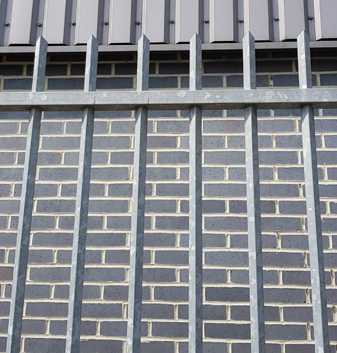Last year was a year like no other, says the head of the European arm of a global industry body of supply chain firms that work to combat cargo theft, Thorsten Neumann, President and CEO of TAPA (Transported Asset Protection Association) EMEA. While the UK had some 3,100 reported incidents of cargo thefts, that high number – second in Europe came Germany, with 1727 crimes over the year – reflects sharing of data with law enforcement in the UK. TAPA EMEA points out that most cargo thefts during road, ocean, air freight and rail transport are still not reported by victims to TAPA’s incident database.
Thorsten Neumann said: “At a time when most businesses were focused almost entirely on a fight for survival, and law enforcement agencies faced the added pressure of policing new government lockdowns, traditional channels of cargo crime data were, as expected, also severely impacted. Consequently, it is difficult to give a meaningful comparison with previous years. However, while some criminal operations would have been disrupted by lockdown measures, 2020 still saw the second-highest rate of incidents in TAPA’s 24-year history, And, had we been able to maintain the same level of data sharing from LEAs across the region as we achieved in 2019, I am certain 2020 would have set a new record for cargo crimes in the EMEA region.
“For Organised Crime Groups (OCGs) and other, smaller groups of offenders targeting supply chains, cargo crime is its own ‘industry’ offering very rich rewards. Although, TAPA EMEA members are among those companies best protected from these threats, the risks remain 24/7/365, even during a pandemic.”
The association says that the top three product types suffering losses in 2020 were:
Food & Drink – 536 cargo thefts; Tobacco – 403 incidents; and ‘no load’ (Theft of truck and/or trailer) – 282 thefts.
Other products suffering high loss rates from supply chains in the year included Furniture and Household Appliances (240 loss incidents), Clothing and Footwear (213), Cosmetics and Hygiene (150), Tools/Building Materials (97), Metal (87), Computers/Laptops (68), and Pharmaceuticals (67). As a sign of how it is relatively easier for criminals to attack goods on the road rather than behind the walls and fences of a warehouse, trucks, trailers and ‘last mile’ delivery vans were by far the most popular target for cargo thieves, as in previous years, led by 3,644 cases of ‘Theft from Vehicle’, 56.3 per cent of all crimes recorded. This compared to only 212 crimes recorded as ‘Theft from Facility’ in 2020.
Some 31 of the 56 countries that had cargo thefts recorded by TAPA saw such crime involving violence. South Africa saw the highest number of violent attacks, followed by the UK, Spain and France. The association has listed some of the criminals’ methods:
– ‘Blue lights’ to impersonate police and traffic officers to stop trucks;
– GPS ‘jammers’ to block vehicle security tracking signals;
– Fake documentation for drivers, vehicles and companies to facilitate cargo collections;
– Road blocks using cars, trucks and fires;
– Driving vehicles through closed gates to gain access to transport yards and warehouses;
– Online freight exchanges to propose low-cost transportation services to be awarded shipment deliveries;
– Gas attacks on drivers taking rest breaks in their cabs, and the use by offenders of pepper sprays to incapacitate drivers; and
– ‘Vehicle breakdown’ alerts by drivers on long distance routes in more remote locations to buy time for drivers, vehicles and loads to disappear.
Some 150 companies have joined the association since the start of 2020; members are typically consumer good product manufacturers, and logistics firms. TAPA, founded in 1997, offers training; and certification of sites for supply chain resilience, such as lorry parking.
More at the TAPA EMEA website.









